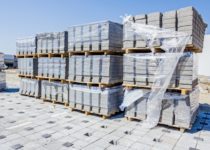
When it was delivered, there was a general consensus that the recent budget was rather underwhelming with respect to its environmental commitments. However, although there wasn’t much, if any, focus on initiatives such as recycling, the budget did contain a “plastic tax.” The Chancellor Phillip Hammond didn’t take the opportunity to introduce a “latte levy” on disposable coffee cups, as many hoped he would, but he did announce this new levy on materials that are not particularly recyclable.
What is the plastic tax?
It is a new tax on the manufacture and import of plastic packaging that contains less than 30% recycled plastic. The tax comes after the decision to add a 5p charge for plastic bags in 2015, which resulted in an 86% drop in plastic bag sales. Many people believe that the budget could have gone much further with respect to eco measures but the plastic tax could still make a difference. So, what kind of impact is it likely to have on the UK’s delivery sector?
Passing on the cost
The new levy will be applied to the manufacture and import cost of plastic items containing less than 30% recycled material. It’s highly likely that manufacturers and importers of these items will pass on the cost of the levy to others further down the chain. Plastic has always been preferable on the basis of being the most cost effective option. If that is no longer the case it could become significantly less popular in the delivery sector.
An incentive to increase recycled content
There is no doubt that the plastic tax in the budget has created an incentive for businesses in the packaging and delivery sector to work with materials that have higher recycled content. Where this may have been a potential option before it may now become a priority.
Promoting plastic alternatives
As more businesses begin to look for plastic-free options, or materials that contain more recycled plastic, we are likely to see an increase in the range of plastic alternatives available. So, effectively the plastic tax is promoting plastic alternatives and their use in the delivery sector. This should mean that it becomes more affordable for those in the sector to make the switch from plastic to other alternatives.
Changing decision making up and down the supply chain
Environmental and recycling groups recognise that they cannot change the attitudes within the industry alone. What the plastic tax will do is to encourage different decisions to be made along the length of supply chains when it comes to the use of plastics. It will be more expensive for any business to continue to remain committed to plastics that have less than 30% recycled content. As a result, decisions about which materials to use will have to be taken differently.
Handling customer expectations
Now that the news about the levy is common knowledge, customers could be more enquiring about whether the brands they choose to work with are being proactive on the issue or not. So, as well as the need to rebalance the new increased cost, there may also be fresh customer expectations to live up to.
Get in touch with UCS today for all your delivery needs and requirements.
